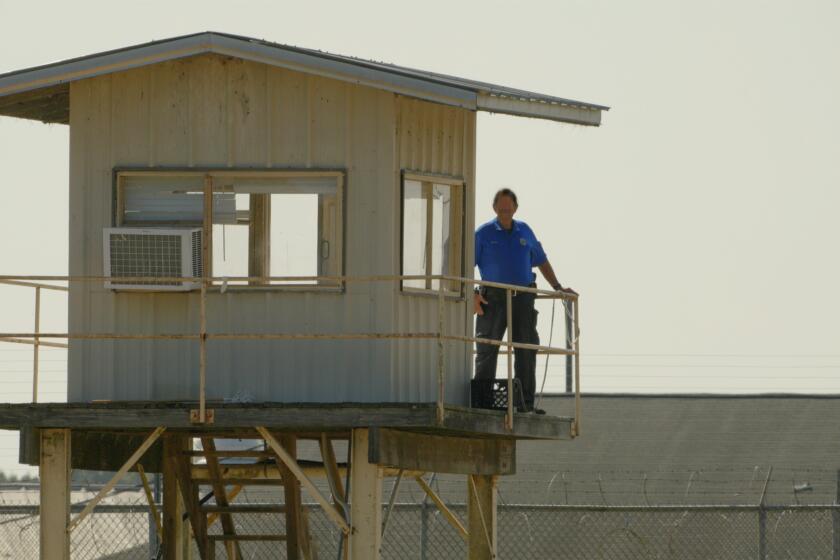Sundance Film Festival ups the ante for representation within the film industry
- Share via
As Hollywood continues to explore uncharted waters when it comes to representation in front of and behind the camera, the Sundance Film Festival remains at the forefront of the conversation.
Among the more than 110 films screening at this year’s edition, which begins Thursday and runs through Feb. 3 in Park City, Utah, are the expected idiosyncratic star vehicles — Jake Gyllenhaal in Dan Gilroy’s art world satire “Velvet Buzzsaw,” Shia LaBeouf’s semi-autobiographical “Honey Boy” from director Alma Har’el — and crowd-pleasers — the Emma Thompson-Mindy Kaling comedy “Late Night,” directed by Nisha Ganatra and written by Kaling.
But a deeper dive into who makes Sundance films is a reminder of how much stronger indie film is than the studio world when it comes to inclusion. Of the 61 directors credited on 56 films across the four main Sundance competition categories — U.S. dramatic and documentary and world dramatic and documentary — 42% are women; 39%, people of color; and 23%, people who identify as LGBTQ, according to statistics released by the festival.
In the 16-film U.S. dramatic competition section, arguably the centerpiece of the festival, 53% of the directors are women; 41%, people of color; and 18%, LGBTQ.
Lost sometimes in the emphasis on statistics such as those is what they can mean, practically, in regard to portraying diverse perspectives on screen, changing what gets presented to audiences, and what can become seen as the new norm.
“It’s not just about seeing representations of yourself, people that look like you on screen, it’s also about representations of your experience,” said Zora Howard, star of “Premature” who also co-wrote the screenplay with director Rashaad Ernesto Green.
It’s not just about seeing representations of yourself, people that look like you on screen, it’s also about representations of your experience.
— Zora Howard, star and co-writer of ‘Premature’
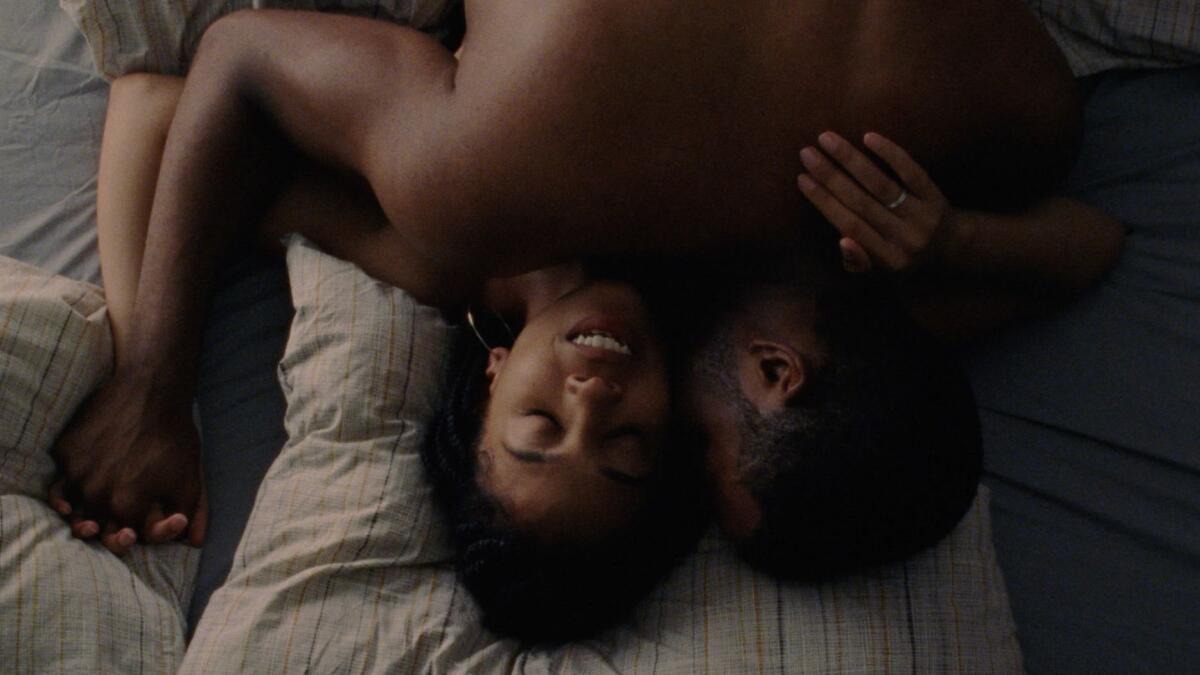
FULL COVERAGE: 2019 Sundance Film Festival »
Premiering in Sundance’s adventurous section called Next, “Premature” is a romantic drama set in contemporary Harlem, where Green and Howard both live, and tells the story of a young woman (Howard) who has an unexpected fling with a slightly older musician (Joshua Boone) the summer before she is to leave for college.
“We don’t just die, we don’t just experience trauma, we don’t just experience pain,” added Howard. “We experience triumphs and joy, and most of the time I would say it’s small, small triumphs, small joys, small love.
“But those stories are still worthwhile to tell,” Howard added. “Everybody loves, everybody knows what that is. No matter where you’re from or what color your skin is, everybody knows that. So we have to have more of that on screen.”
Among the other films shining a light on characters traditionally marginalized by Hollywood are Justin Chon’s “Ms. Purple,” largely set in L.A.’s Koreatown; Julius Onah’s “Luce,” following a star high school student who was adopted by white parents as a child in war-torn Africa; Rhys Ernst’s “Adam,” which explores sexual identity; Lulu Wang’s “The Farewell,” starring Awkwafina as a New Yorker rediscovering her roots in China; and artist Rashid Johnson’s directorial debut, “Native Son,” a contemporary adaptation of Richard Wright’s novel by playwright Suzan-Lori Parks.
Martha Stephens brought a distinct set of references to her latest directorial effort, “To the Stars,” which is premiering in the U.S. dramatic section. The film’s story is about friendship and coming-of-age between two high school girls in 1960s Oklahoma, played by “Moonrise Kingdom” star Kara Hayward and “Novitiate” actress Liana Liberato.
Where are the sincere adolescent stories that we had? I was like, ‘Oh, man, this could be my “My Girl” meets my “Last Picture Show.”
— Martha Stephens, director of “To the Stars”
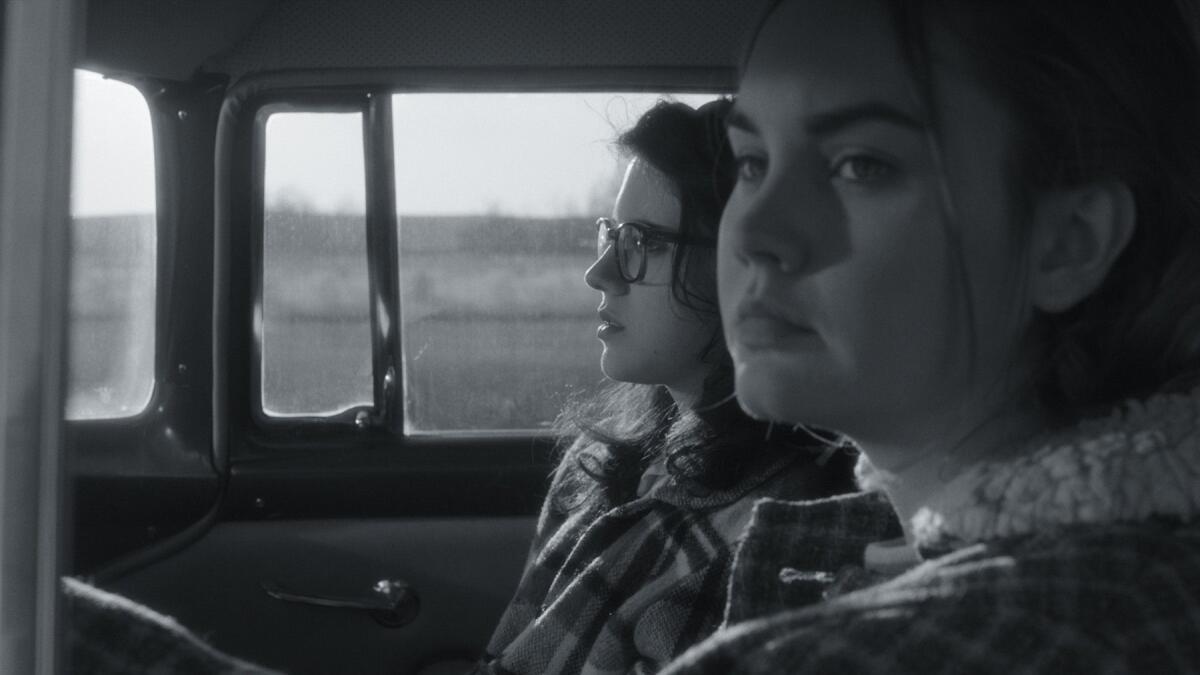
Stephens previously co-directed the film “Land Ho!,” which premiered at Sundance in 2014 and went on to be distributed by Sony Pictures Classics and win a Spirit Award. Stephens was at Sundance with her producer Kristin Mann two years ago trying to set up another project when Shannon Bradley-Colleary’s script for “To the Stars” made its way to them. Stephens immediately saw the film as being in black-and-white, but something else about it also spoke to her.
“There are films that I missed from my childhood that don’t seem to get made anymore,” said Stephens. “There’s been this resurgence of content that pays homage to Spielberg and Carpenter and Zemeckis and stuff like that. Sci-fi and horror. But where are the sincere adolescent stories that we had? I was like, ‘Oh, man, this could be my “My Girl” meets my “Last Picture Show.” ‘ And the combination of those two things is really appealing ... it just felt right.”
At the end of last year’s festival, there was some grumbling in the media that because there were no clear-cut favorites from the program, that it was an off year. But multiple breakouts emerged at the box office, most notably the documentary trifecta of “Won’t You Be My Neighbor,” “RBG” and “Three Identical Strangers.” Several fiction films from the festival such as “Sorry to Bother You,” “Searching,” “Eighth Grade” and “Hereditary” also racked up positive press and strong box office on release.
Heading into this year’s festival, there may actually be outsized expectations for the program’s commercial prospects.
“I always think of every year as unique,” said Rena Ronson, partner and co-head of UTA Independent Film Group. “Some years may generate more box-office and critical success than other years, but what is consistent is there is always a gem or two that pops.”
Another thing that can be dependably expected from Sundance is filmmaking with a social conscience and political will. This year, among the most highly anticipated films of the festival is “The Report,” written and directed by Scott Z. Burns and playing in the Premieres section. The fact-based film stars Adam Driver as Daniel Jones, a Senate staffer assigned to investigate the detention and interrogation program adapted by the CIA after 9/11. Annette Bening also appears as Sen. Dianne Feinstein.
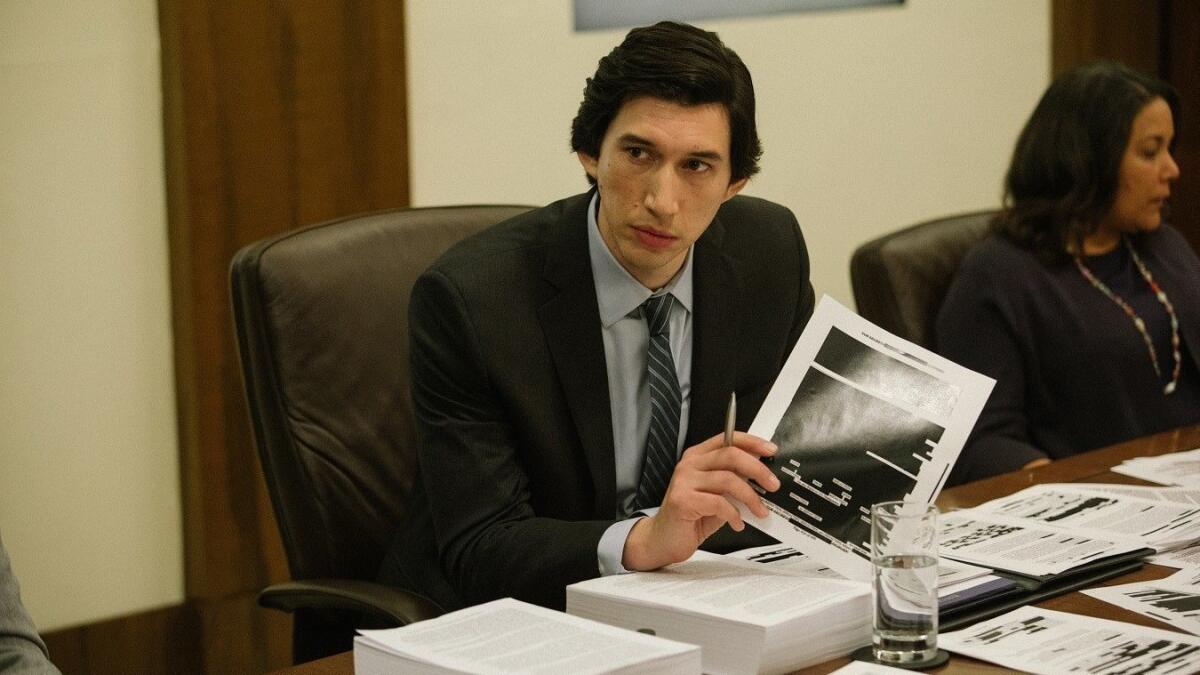
Burns was a producer on the documentary “An Inconvenient Truth,” which came to Sundance looking for a distributor in 2006 and went on to win an Oscar in 2007. He likens “The Report” to political thrillers such as “Serpico,” “Silkwood” or “Erin Brockovich” for the way in which it is rooted in character as much as in political and social issues. Burns notes there is maybe one minute of overlap between his film and “Vice,” the current film about former Vice President Dick Cheney.
“The movie is also about the process of government, and who we are, and the idea of holding people accountable, like at the moment we’re living through, right this second,” said Burns. “These are things that I think for a long time we’ve taken for granted. So I hope that people consider the movie an accurate historical document, but I also hope they find something in the current moment that the movie is bouncing off of.”
Steven Soderbergh, a frequent collaborator with Burns, is among the producers of “The Report” and is also executive producer of the upcoming Starz series “Now Apocalypse,” created by Gregg Araki, which will debut as a special event at Sundance. The ever-iconoclastic Soderbergh will be in Park City to premiere his new film “High Flying Bird,” soon to launch on Netflix, at the coinciding Slamdance Film Festival and receive that festival’s Founders Award.
Sundance 2019 Film Festival: See the latest video interviews


Video: Behind the scenes of the L.A. Times 2019 Sundance photo/video studio
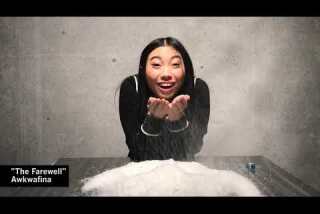
Video: The 2019 Sundance Film Festival Boomerang Supercut
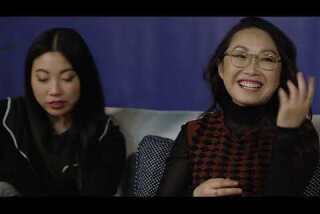
Video: How do you make the most of a small budget?
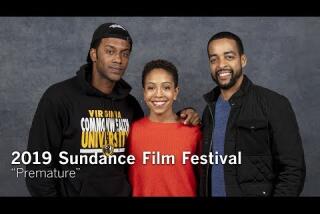
Video: Cast and filmmaker discuss trusting each other while shooting 'Premature'
3:12
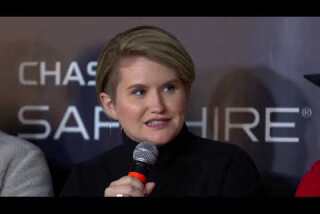
Video: 'Brittany Runs a Marathon' breaks conventions and stereotypes
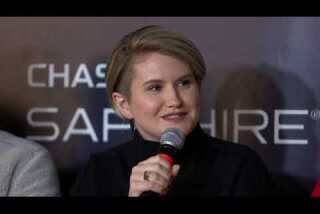
Video: Jillian Bell is tired of getting scripts about body image issues
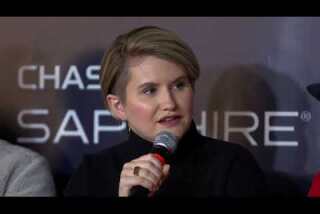
Video: Jillian Bell lost 40 pounds for her role in 'Brittany Runs a Marathon'
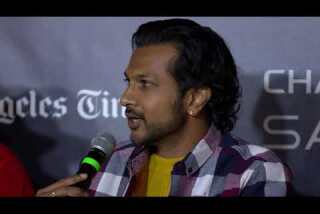
Video: 'Brittany Runs a Marathon' actors break out of their sidekick roles
With opportunities for filmmakers continuing to grow on the small screen, Araki shares writing credit on his 10-episode series with sex and relationship columnist Karley Sciortino. Though Araki has directed many episodes of television, this is his first time creating his own show. Bringing it to Sundance feels like a homecoming, he says.
“Sundance and I grew up together,” Araki said, noting that when his film “The Living End” played at the festival in 1992, the internet was barely in its infancy. An image from Araki’s 1995 film “The Doom Generation,” starring Rose McGowan, is being used by the festival this year in its marketing materials, along with the slogan “Risk Independence.” As the festival has moved to embrace new storytelling forms and continued to emphasize inclusion in its programming, it is holding onto long-standing core values.
“Things are changing so fast, and that’s what’s so cool about premiering at Sundance,” Araki said. “It’s all part of the evolution of media and independent film, how storytelling is changing as well. The way that people are watching stories, the way people are consuming stories, and Sundance is the intersection of all that. Independent film has sort of pushed media in a way. That Sundance sensibility is really responsible for a lot of how things have gotten.”
SIGN UP for the free Indie Focus movies newsletter »
Follow on Twitter: @IndieFocus
More to Read
Only good movies
Get the Indie Focus newsletter, Mark Olsen's weekly guide to the world of cinema.
You may occasionally receive promotional content from the Los Angeles Times.







